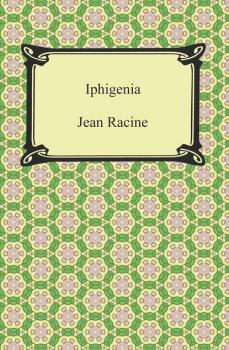Зарубежная драматургия
Различные книги в жанре Зарубежная драматургияA Doll's House and Other Plays
"A Doll's House and Other Plays" is a collection of eight of the most popular dramas by Henrik Ibsen. In «A Doll's House» we have the story of Nora Helmer, the wife of the prideful bank manager Torvald. Nora finds herself the victim of a blackmail scheme by Nils Krogstad, a man whom she has borrowed money from in order to save her husband's life. Probably Ibsen's most famous work, «A Doll's House» is accompanied by the following and equally dramatic works: «The League of Youth», «Ghosts», «An Enemy of the People», «The Wild Duck», «The Lady From the Sea», «Hedda Gabler», and «The Master Builder». In this volume fans of Ibsen and the dramatic theater will find a representative selection from one of the greatest dramatists to ever have lived.
The Importance of Being Earnest and Five Other Plays
Witty playwright Oscar Wilde is most famous for his 1895 play «The Importance of Being Earnest.» The two protagonists use a false identity, Earnest, as a way to escape from unwanted social obligations. However, they encounter difficulties keeping up their personas as their social circles draw closer together. Wilde drew upon what he thought were outrageous social conventions of the Victorian Era and used satire to show the absurdity of its beliefs, like how marriage was more of a boring burden than a joyous commitment. «The Importance of Being Earnest» is one of the best known plays of the Victorian Era and has endured many revivals over the past one-hundred years. It is also a prime example of many Victorian gaffes, though they have to be viewed through the lens of Wilde's sardonic humor. Gathered in the collection «The Importance of Being Earnest and Five Other Plays» are «Lady Windermere's Fan,» «A Woman of No Importance,» and «An Ideal Husband», all of which speak to Wilde's satirical tone and attitude toward the Victorian Era. Also included are the fragmentary play, «A Florentine Tragedy» and «Salome,» a retelling of the Biblical story where Salome asks for John the Baptist's head on a platter. Its tone is much darker and tragic than most of Wilde's other works, but its ability to portray such a gruesome event in a respectful way only proves that Oscar Wilde is one of the most important writers of the nineteenth century.
Pizarro
Richard Brinsley Sheridan (1751-1816) was a man with many roles. He was not only a playwright and poet, he was also a Whig Member of the British House of Commons and owner of the London Theatre Royal on Drury Lane. Though born in Ireland, Sheridan and his family moved outside of London when he was seven. Both of his parents were theatrical influences for him, as his mother was a playwright and novelist, and his father was at one time an actor. In 1722, the character of Sheridan's intended fiancé was challenged by Captain Thomas Mathews. The result was two duels, the first left both parties unscathed, while the second resulted in bloodshed, though Sheridan was the resounding winner. First performed in 1800, «Pizarro» is based on a German drama by Kotzebue. It is a story of Spanish imperialism over the Incas of Peru.
Salomé
Originally published in French, ‘Salomé’ is Oscar Wilde’s 1896 dramatization of the biblical story of Salome, the step-daughter of Herod who danced before Herod and in so doing wins the granting of any wish that Herod may be able to fulfill. Salome asks for the head of John the Baptist. Fans of Wilde will delight in the dramatization of this biblical story.
Athaliah
The 17th century dramatist Jean Racine was considered, along with Molière and Corneille, as one of the three great playwrights of his era. The quality of Racine's poetry has been described as possibly his most important contribution to French literature and his use of the alexandrine poetic line is one of the best examples of such use noted for its harmony, simplicity and elegance. While critics over the centuries have debated the worth of Jean Racine, at present, he is widely considered a literary genius of revolutionary proportions. In this volume of Racine's plays we find «Athaliah», the last of twelve plays by the author. Considering that it was Racine's final work it may comes as no surprise that it has been described as the masterpiece of «one of the greatest literary artists known.» Revered by Voltaire who saw it as «perhaps the masterpiece of mankind» and by Flaubert who referred to it as an «immortal masterpiece of the French stage.» The story itself concerns the biblical story of Athaliah, widow of the king of Judah who rules the country as Queen regnant. Believing that the rest of the royal family was been eliminated she abandons the Jewish religion for the worship of Baal.
Iphigenia
The 17th century dramatist Jean Racine was considered, along with Molière and Corneille, as one of the three great playwrights of his era. The quality of Racine's poetry has been described as possibly his most important contribution to French literature and his use of the alexandrine poetic line is one of the best examples of such use noted for its harmony, simplicity and elegance. While critics over the centuries have debated the worth of Jean Racine, at present, he is widely considered a literary genius of revolutionary proportions. In this volume of Racine's plays we find «Iphigenia», the ninth of twelve plays by the author. After a series of historical dramas Racine choose to return to mythological subject matter for his ninth play. As Agamemnon, King of the Greeks, prepares his navy to attack Troy, the gods quell the winds for their journey and demand the sacrifice of Iphigenia, Agamemnon's daughter. Based in part on Euripides' «Iphigenia in Aulis», Racine departs somewhat by substituting an alternative dramatic solution for the ending.
The Oresteia (Agamemnon, The Libation-Bearers, and The Eumenides)
The importance of Æschylus in the development of the drama is immense. Before him tragedy had consisted of the chorus and one actor; and by introducing a second actor, expanding the dramatic dialogue thus made possible, and reducing the lyrical parts, he practically created Greek tragedy as we understand it. Like other writers of his time, he acted in his own plays, and trained the chorus in their dances and songs; and he did much to give impressiveness to the performances by his development of the accessories of scene and costume on the stage. «The Oresteia» is one of the supreme productions of all literature. It deals with the two great themes of the retribution of crime and the inheritance of evil; and here again a parallel may be found between the assertions of the justice of God by Æschylus and by the Hebrew prophet Ezekiel. Both contend against the popular idea that the fathers have eaten sour grapes and the children's teeth are set on edge; both maintain that the soul that sinneth, it shall die. The nobility of thought and the majesty of style with which these ideas are set forth give this triple drama its place at the head of the literary masterpieces of the antique world.
The Inca of Perusalem, Augustus Does His Bit, and Annajanska, the Bolsheik Empress
George Bernard Shaw (1856-1950) is revered as one of the great British dramatists, credited not only with memorable works, but the revival of the then-suffering English theatre. Shaw was born in Dublin, Ireland, left mostly to his own devices after his mother ran off to London to pursue a musical career. He educated himself for the most part, and eventually worked for a real estate agent. This experience founded in him a concern for social injustices, seeing poverty and general unfairness afoot, and would go on to address this in many of his works. In 1876, Shaw joined his mother in London where he would finally attain literary success, and went on to win the Nobel Prize for literature in 1925. He used the stage to deliver messages to his audiences in the hope of bettering society. Shaw's vision was not just to reconcile issues within his society, but to encourage mankind to strive for a sort of perfection close to divinity. He did not ask questions about the present, but envisioned an alternate reality altogether. Contained in this volume are three of Shaw's lesser known works: «The Inca of Perusalem», «Augustus Does His Bit», and «Annajanska, the Bolsheik Empress».
Britannicus
The 17th century dramatist Jean Racine was considered, along with Molière and Corneille, as one of the three great playwrights of his era. The quality of Racine's poetry has been described as possibly his most important contribution to French literature and his use of the alexandrine poetic line is one of the best examples of such use noted for its harmony, simplicity and elegance. While critics over the centuries have debated the worth of Jean Racine, at present, he is widely considered a literary genius of revolutionary proportions. In this volume of Racine's plays we find «Britannicus», the fifth of twelve plays by the author. «Britannicus» is the first work by the author to draw upon Roman History for its subject matter. The story concerns Britannicus, the son of the Roman emperor Claudius, and would be heir to the imperial throne. Britannicus's rule would be usurped however by Nero who has desires for Britannicus's fiancée Junia as well. The struggle for power and love are at odds in this play. Considered one of Racine's best works, «Britannicus» is still widely studied by young dramatists.
Every Man in His Humour
Ben Jonson's career began in 1597 when he held a fixed engagement in the «Admiral's Men», and although he was unsuccessful as an actor, his literary talent was apparent and he began writing original plays for the troupe. Jonson had a knack for absurdity and hypocrisy, a trait that made him immensely popular in the 17th century Renaissance period. It is known that Shakespeare's company produced several of Jonson's plays, Shakespeare himself appearing in «Every Man in His Humour» (1598). The play was Jonson's first major success, written in the style of «humour plays», a genre of comedy originated by George Chapman. In it, Jonson targets some of his favorite topics for satire: education, love, poetry, and social classes. As each major character represents a different issue, the play transforms into a depiction of everyday Renaissance life, and a scathing social commentary on the problems that plagued it.









